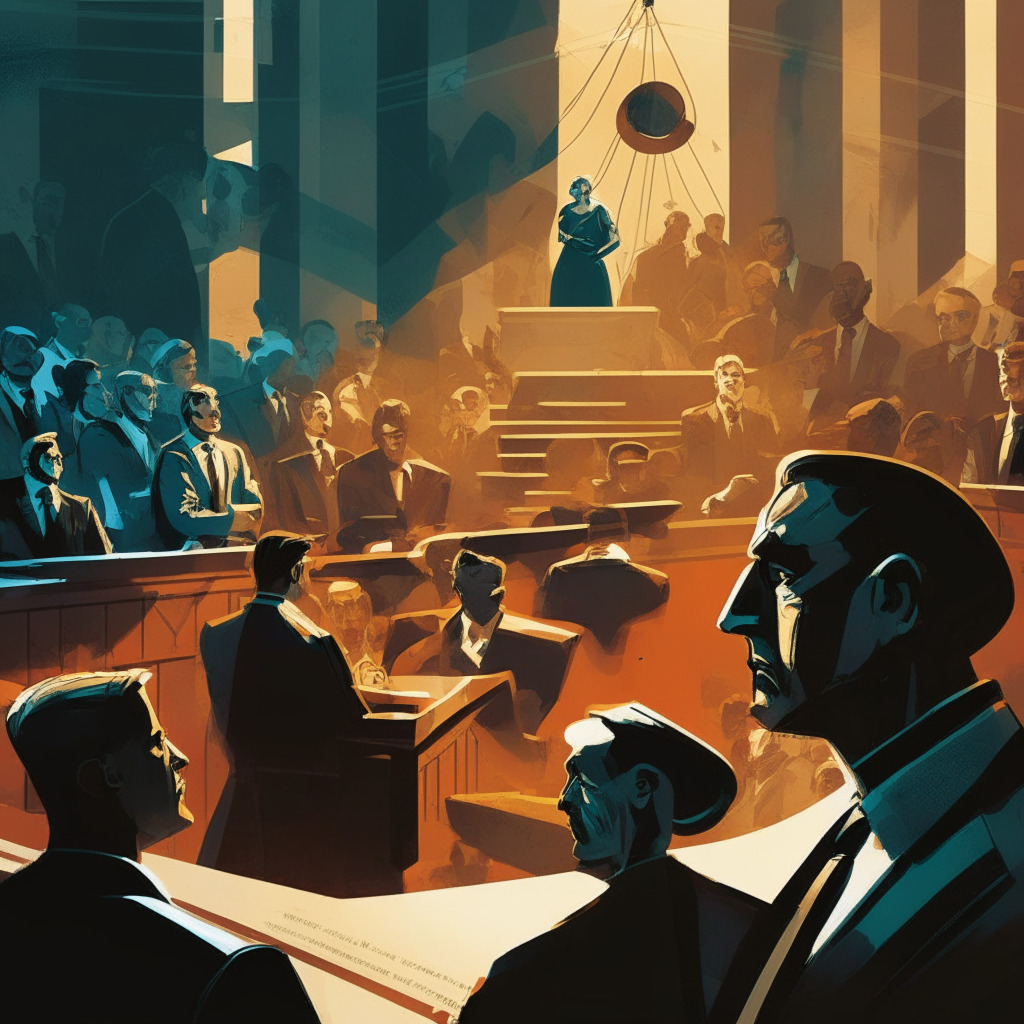The crypto arena is in a tumultuous state, with Ripple CEO Brad Garlinghouse lashing out at the SEC (Securities and Exchange Commission) for what he perceives as confusion and disorder in their approach to regulations. Garlinghouse’s outcry revolves around the perceived notion that the SEC has improperly interjected itself into the crypto arena without any legal jurisdiction. While he acknowledges the necessity of keeping the crypto world checked, the irregular balance between enforcement and legislation seems to be leading to unnecessary trials and senseless investor losses.
In a subsequent tweet, Garlinghouse described the SEC’s regulatory actions as absurd. However, it should be considered whether the SEC’s intentions might be born out of an earnest desire to instill law and order in a sphere that operates in a largely unregulated grey area or whether this is just an attempt to take control of a system designed to challenge financial norms.
The court ruling which has seemingly infuriated Garlinghouse, deemed retail sales of Ripple’s digital asset, XRP, not a security in the conventional sense. Nonetheless, SEC lawyers assert that transactions involving XRP should indeed qualify as securities, pointing to a possible appeal down the line. Although the legal tussles may seem disproportionate to some of the crypto insiders, it’s pertinent to remember that legal integrity is often tested in these grey areas, where new technology challenges traditional legal frameworks.
The discord between Ripple Labs and the SEC also reflects the larger, global uncertainty surrounding the legal status of cryptocurrencies. As more businesses and even countries begin to embrace digital money, the call for efficient legislation gains more momentum. Garlinghouse’s jab at the SEC comes as an appeal for more legislation rather than “more regulation by enforcement.” This stands to resonate with many who, despite their enthusiasm for the potential of cryptocurrencies, also yearn for a balanced, fair, and transparent legal structure within which this new world can operate.
Stuart Alderoty, Ripple Labs’ Chief Legal Officer, added his voice to this debate, likening the challenge of explaining why XRP isn’t a security to proving a flat earther wrong about the world’s shape. The juxtaposed perspectives within this conversation reveal a complex reality; regulators have a challenge to shoulder in balancing market freedoms with investor protection. And as such discussions unfold, the future of global economies and financial systems hangs in the balance.
Source: Cointelegraph




